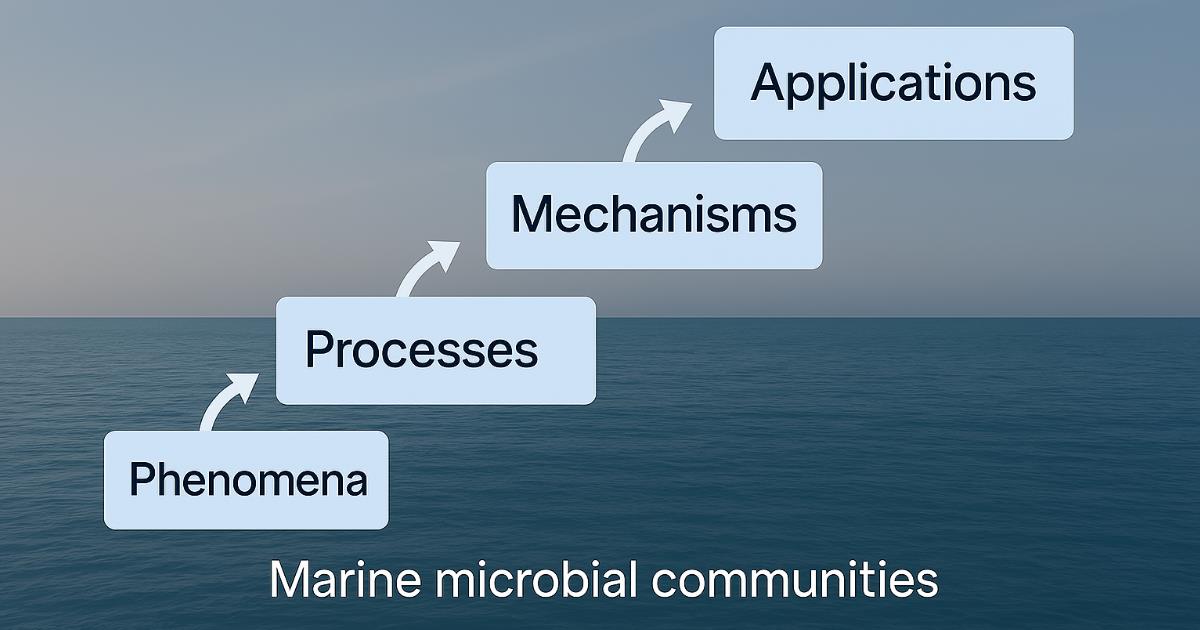Dynamics and Ecological Function of Marine Microbial Communities
A special issue of Journal of Marine Science and Engineering (ISSN 2077-1312). This special issue belongs to the section "Marine Ecology".
Deadline for manuscript submissions: 25 March 2026 | Viewed by 238

Special Issue Editors
Interests: marine microbiology; microbial ecology; marine biogeochemical cycles; marine biocorrosion; marine pollution
Special Issues, Collections and Topics in MDPI journals
Interests: marine microbiology; environmental toxicology; aquaculture; aquatic animal nutrition and feed
Interests: microbiologically influenced corrosion; marine corrosion; biofilms; bioleaching; materials
Special Issues, Collections and Topics in MDPI journals
Special Issue Information
Dear Colleagues,
Marine microbial communities, which comprise bacteria, archaea, microscopic eukaryotes, and viruses, play a fundamental role in the structure, function, and sustainability of ocean ecosystems. Nutrient cycling, primary production, organic matter decomposition, and many other critical ecological processes vital for supporting marine food webs, ecosystem services, and global climate regulation are driven by the functions of microbial communities. The dynamics of microbial communities are largely affected by environmental factors and intra- and interspecific interactions, along with anthropogenic disturbances such as pollution and climate change. Microbial functions are governed by complex biochemical interactions and molecular regulations, which provide the mechanisms necessary for microbial communities to adapt to changing environmental conditions. However, ocean warming, acidification, deoxygenation, and other environmental degenerations disrupt these processes and mechanisms, potentially compromising the functioning of microbial communities and ecosystems. Understanding these processes and mechanisms is essential for addressing environmental challenges such as ocean deterioration and climate change and providing insights into managing and preserving marine ecosystems. Advances in multi-omics tools, network analysis, and ecological modeling offer a holistic framework for predicting microbial dynamics and functions in a changing ocean. Ultimately, microbial engineering may provide a solution that allows us to harness marine microbial communities for sustainable resource management, environmental restoration, and climate change mitigation.
Prof. Dr. Hongyue Dang
Prof. Dr. Chunxiang Ai
Prof. Dr. Ruiyong Zhang
Dr. Xin Liu
Guest Editors
Manuscript Submission Information
Manuscripts should be submitted online at www.mdpi.com by registering and logging in to this website. Once you are registered, click here to go to the submission form. Manuscripts can be submitted until the deadline. All submissions that pass pre-check are peer-reviewed. Accepted papers will be published continuously in the journal (as soon as accepted) and will be listed together on the special issue website. Research articles, review articles as well as short communications are invited. For planned papers, a title and short abstract (about 250 words) can be sent to the Editorial Office for assessment.
Submitted manuscripts should not have been published previously, nor be under consideration for publication elsewhere (except conference proceedings papers). All manuscripts are thoroughly refereed through a single-blind peer-review process. A guide for authors and other relevant information for submission of manuscripts is available on the Instructions for Authors page. Journal of Marine Science and Engineering is an international peer-reviewed open access semimonthly journal published by MDPI.
Please visit the Instructions for Authors page before submitting a manuscript. The Article Processing Charge (APC) for publication in this open access journal is 2600 CHF (Swiss Francs). Submitted papers should be well formatted and use good English. Authors may use MDPI's English editing service prior to publication or during author revisions.
Keywords
- marine microbial ecology
- microbial community dynamics
- microbial community functioning
- marine biogeochemical cycling
- mariculture microbiology
- marine biocorrosion
- microbial bioremediation
- microbial engineering
- microbial geoengineering
- effects of climate change on microbiology
Benefits of Publishing in a Special Issue
- Ease of navigation: Grouping papers by topic helps scholars navigate broad scope journals more efficiently.
- Greater discoverability: Special Issues support the reach and impact of scientific research. Articles in Special Issues are more discoverable and cited more frequently.
- Expansion of research network: Special Issues facilitate connections among authors, fostering scientific collaborations.
- External promotion: Articles in Special Issues are often promoted through the journal's social media, increasing their visibility.
- Reprint: MDPI Books provides the opportunity to republish successful Special Issues in book format, both online and in print.
Further information on MDPI's Special Issue policies can be found here.








